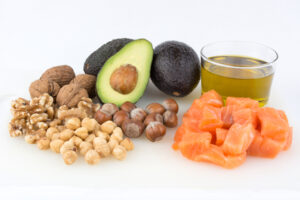Last month, I shared the first 5 of my top 10 “health food” impostors. I hope you made some changes, based on what you learned. For May, I present to you impostors six through ten.
Low-Fat Milk: Despite four decades of government propaganda, fat has not been scientifically linked to heart disease (except for man-made, synthetic trans-fats). Further, eliminating fat dramatically decreases our fat-soluble whole food vitamins (A, D, E, K), as well as essential fatty acids. These critical nutrients have become deficient in the modern diet. Back in the 1930s, Dr. Weston Price traveled around the world, studying different cultures, and found the countries that consumed the most natural fats were ten times less likely to develop chronic health conditions such as heart disease, diabetes, strokes, and cancer. Not only is there no benefit to eliminating natural fats, you are actually more likely to become ill if you do ban these fats from your diet!
Organic Agave: How does a sweetener with ~70% fructose content and virtually no clinical data to its name suddenly become a healthy alternative to sugar? Its current industrial processing involves high heat and synthetic chemical catalysts – though we don’t even know which ones because the agave producers are not required to reveal them! Both agave and high fructose corn syrup (HFCS) contain a mixture of sucrose and fructose, so let’s compare. Whereas HFCS is only 55% fructose, agave is 70% to 90%!
Organic Frozen Dinners: Even if it’s organic, any frozen dinner is highly processed, and the processing decreases the nutritional value of the food. As humans, we require nutritionally dense foods so our cells get what they need to function properly. When we eat nutritionally-void foods, our cells keep calling out “Feed me!” What do we tend to do then? Usually, we feed them more nutritionally-void foods, creating a perpetual cycle of eating and weight gain. In addition, frozen dinners are placed in plastic containers with BPA, or other chemically-laden containers, causing hormone disruption, cancer, inflammation, and more. (Recently, several studies have uncovered BPA leaching from plastics labeled as BPA-free.) There’s no such thing as a nutritionally safe plastic. The chemicals will, slowly or rapidly, accumulate in your body, depending on how much you use plastics. Heat, the presence of liquids or fats in the food/beverage, and length of contact with the plastic are three factors that induce more chemical leaching from the plastics.
Butter-Like Spreads: Most of these are GMO and contain non-fermented soybean, palm, canola, or another oil that has been heated, making them rancid. There are a few butter-like spreads that are GMO free and cold pressed, but they still include non-fermented soybean oil, which has been found to disrupt thyroid function. In the 60s and 70s, butter was good for you. By the 80s and 90s butter, was bad, but margarine was good. In the 2000s, margarine was bad and so was butter, and other butter-like spreads were introduced. Now, butter is great for you, and margarine and similar spreads are to be avoided. It has come full circle!
Energy/Protein/Meal Replacement Bars: In most cases these bars are the bottom-of-the-barrel among nutritionally-void foods: filled with aspartame, sucralose, agave, GMO grains and soy, synthetic vitamins, trans-fats, hydrogenated/partially hydrogenated oil, refined grains, and sugars (often twice as many calories from sugar than from protein!). They are decidedly not health foods, and most could accurately be called an anti-nutrient. There are some good snack bars on the market like Lara Bars, which include only two to four ingredients of fruits and nuts (Cashew and Date is a favorite), and Standard Process Bars (the Berry Bar is my favorite). There are probably some others, but read the label carefully!
What to Do Instead:

Fats: Consume them, but stick to the good ones! As I explained last time, use organic, cold pressed oils like flaxseed, olive, fish, and coconut (with at least 1000 mg of the DHA/EPA combination). Avocados are also an excellent source of natural fats.
Sweeteners: The best options for sweeteners are Xylitol (proven to prevent cavities!) and organic stevia.
Containers: I would use glass water container with a protective foam wrap and glass storage containers for leftover food. Stainless steel, glass, and ceramics are fine for beverages.
Butter: Ideally, choose organic butter or – even better – raw butter from a local farm.
Eating on the Go: Smarter snacking would be simply include some raw nuts and organic dried dates or prunes, or some fresh fruit. Limit bars to only those occasions when you really need something quick to eat and don’t have access to a whole food meal or snack. (NOTE: This should not be a daily activity!)
It is time to take control of our health, which is a choice, not a given right. There’s been a focus on blaming genetics, but the truth is that 80% of Americans will die from chronic, degenerative diseases, which are 100% rooted in what out bodies are exposed to: foods we eat, products/chemicals we absorb through our skin (beauty & hygiene products) and inhale (cleaning products), lack of sleep, chronic stress, poor self-esteem, and spinal misalignments that interfere brain-body communications.
Either we invest into our wellness now, or we will invest into our sickness later (and sooner than you might think!). Let’s get and stay well.
Next month, we will examine the 10 hidden toxins in your home!
